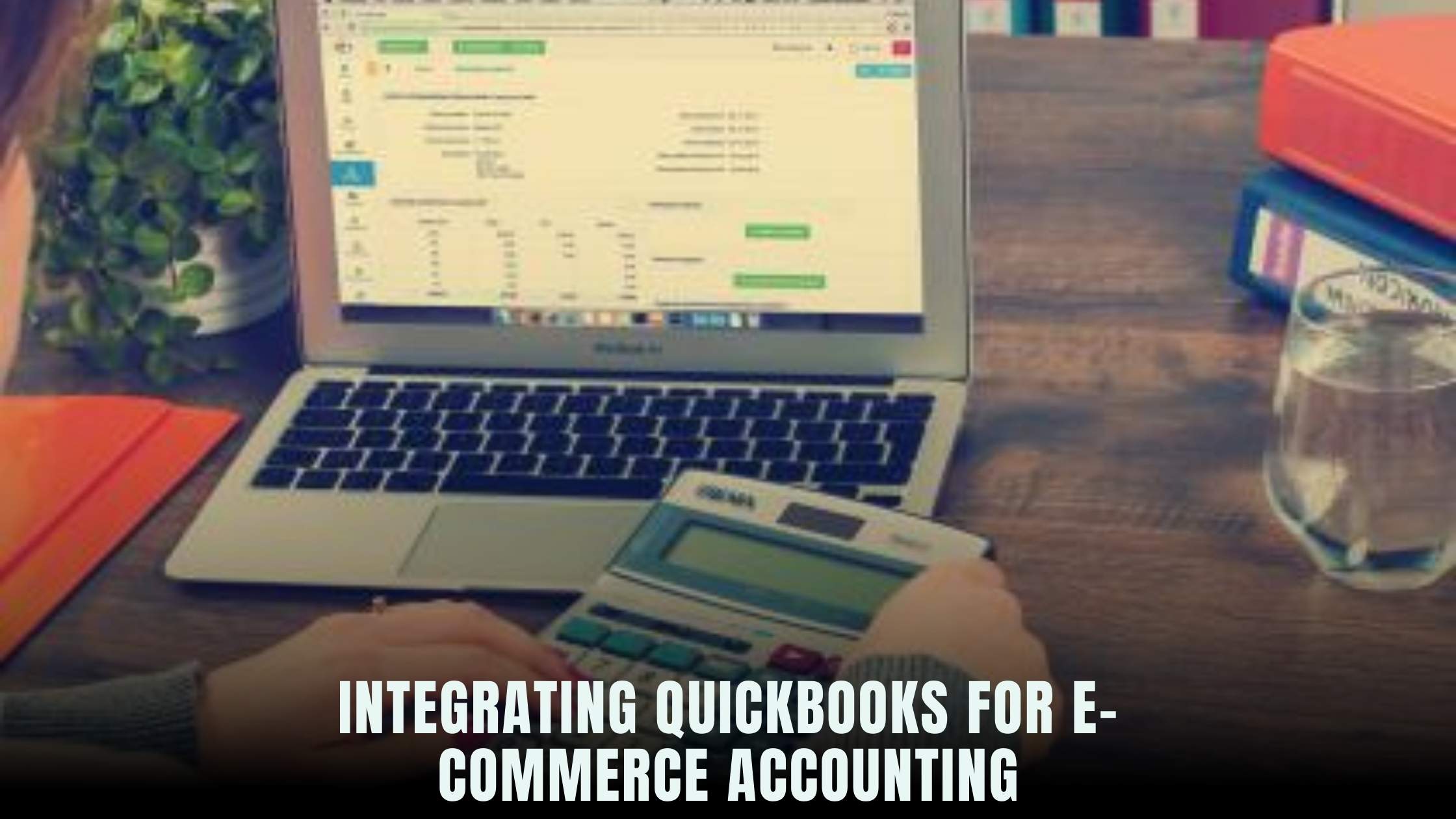Integrating QuickBooks for E-commerce Accounting


Managing finances effectively is crucial for the success of any e-commerce business. With the rise of online retail, streamlining accounting processes has become essential to maintain accurate records, track expenses, and make informed financial decisions. QuickBooks, a leading accounting software, offers powerful tools and integrations tailored for e-commerce businesses, making it an ideal solution for managing finances seamlessly. In this comprehensive guide, we’ll explore how integrating QuickBooks for e-commerce accounting can streamline operations, improve financial visibility, and drive growth.
Understanding QuickBooks Integration for E-commerce
QuickBooks is a versatile accounting software that provides a range of features designed to meet the unique needs of e-commerce businesses. By integrating QuickBooks with e-commerce platforms and third-party applications, businesses can automate repetitive tasks, sync data in real-time, and gain valuable insights into their financial performance. Here’s how QuickBooks integration enhances e-commerce accounting:
1. Automated Bookkeeping
QuickBooks automates bookkeeping tasks such as recording sales transactions, tracking expenses, and reconciling bank accounts. With seamless data synchronization between e-commerce platforms and QuickBooks, businesses can eliminate manual data entry errors and ensure accurate financial records.
2. Inventory Management
Integrating QuickBooks with e-commerce inventory management systems enables businesses to track inventory levels, monitor stock movements, and manage purchase orders efficiently. Real-time inventory updates ensure that businesses have the right products available to fulfill customer orders promptly.
3. Financial Reporting
QuickBooks offers robust reporting capabilities, allowing e-commerce businesses to generate customized reports on sales performance, profit margins, and cash flow analysis. By accessing real-time financial data, businesses can make data-driven decisions and identify areas for optimization and growth.
4. Tax Compliance
QuickBooks simplifies tax compliance for e-commerce businesses by automatically calculating sales tax, VAT, and other taxes based on transaction data. Integration with tax automation platforms ensures accurate tax reporting and helps businesses stay compliant with changing tax regulations.
5. Payment Processing
Many e-commerce platforms integrate directly with QuickBooks to streamline payment processing and reconciliation. By syncing payment transactions with QuickBooks, businesses can track revenue, manage refunds, and reconcile bank deposits effortlessly.
Relevant SaaS Products for E-commerce Accounting
1. Shopify
Shopify is a leading e-commerce platform that seamlessly integrates with QuickBooks, allowing businesses to sync sales data, customer information, and inventory levels. With Shopify integration, e-commerce entrepreneurs can manage their online store and accounting operations from a single dashboard.
2. WooCommerce
WooCommerce is a popular e-commerce plugin for WordPress that integrates with QuickBooks through various third-party plugins and extensions. WooCommerce enables businesses to sell products online and sync order data, product details, and customer information with QuickBooks for accurate accounting.
3. BigCommerce
BigCommerce is another e-commerce platform that offers native integration with QuickBooks, enabling businesses to streamline order management, inventory tracking, and financial reporting. With BigCommerce integration, e-commerce retailers can scale their operations and manage finances effectively.
4. Square
Square is a comprehensive payment processing solution that integrates seamlessly with QuickBooks, allowing businesses to accept online payments, track sales, and sync transaction data with their accounting software. Square simplifies payment processing for e-commerce businesses and ensures accurate financial records.
5. ShipStation
ShipStation is a shipping and fulfillment platform that integrates with QuickBooks to automate order fulfillment, shipping label generation, and inventory management. By syncing order data between ShipStation and QuickBooks, e-commerce businesses can streamline order processing and reduce shipping errors.
As e-commerce businesses seek to optimize their accounting processes with QuickBooks integration, Subscribed.FYI offers exclusive deals and discounts on premium SaaS products mentioned in this article. By accessing Subscribed.FYI Deals, e-commerce entrepreneurs can unlock special offers and savings on top-notch e-commerce platforms, accounting software, and integrations, empowering them to streamline operations, improve financial visibility, and drive growth.
Relevant Product Links:








